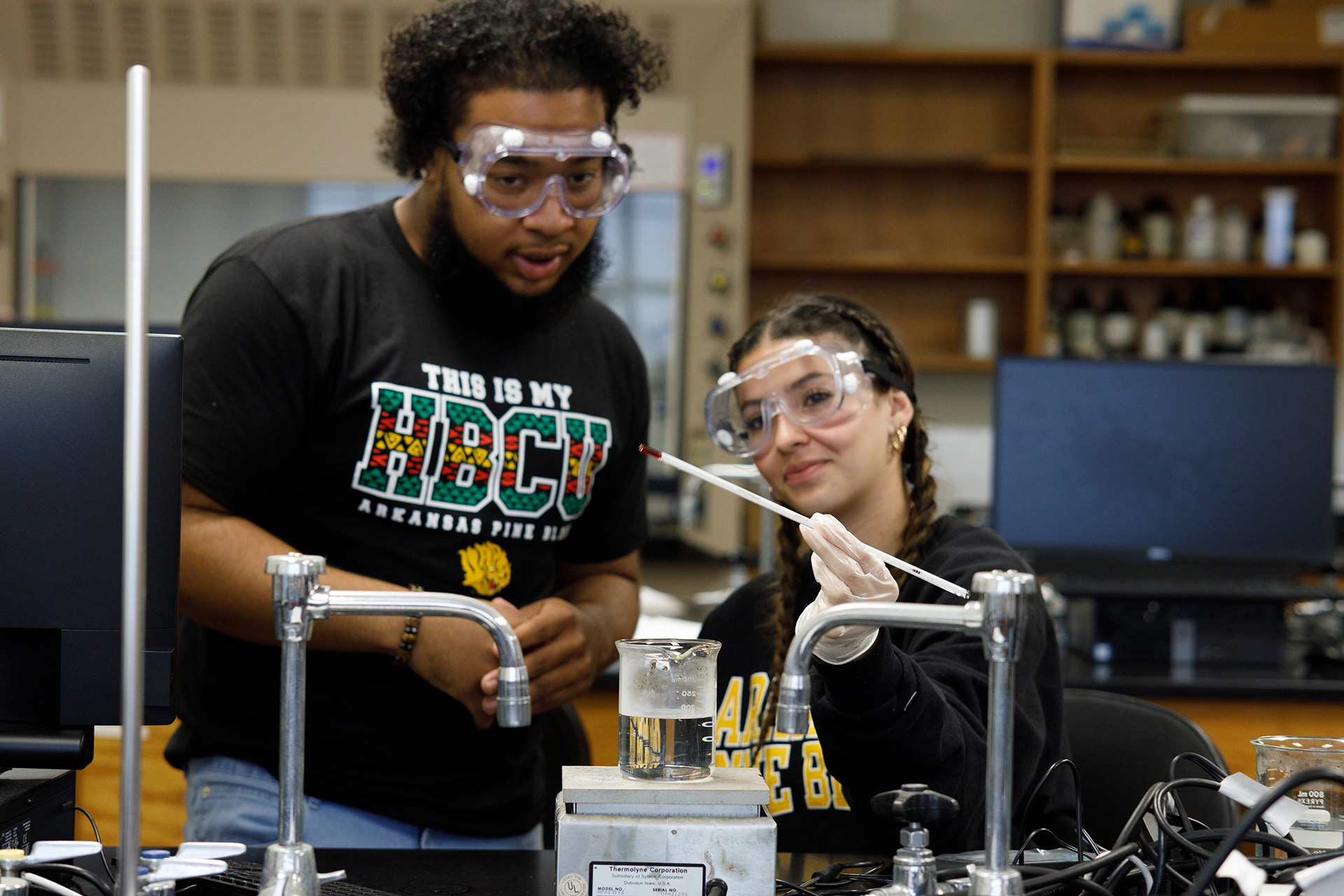Welcome to the Department of Chemistry and Physics
The Department of Chemistry and Physics at the University of Arkansas at Pine Bluff is a dynamic department that embodies an ideal academic standard in an ever-changing technological world of science. We are in line with the University’s mission and vision and we are in the process of launching new programs for both undergraduate and graduate programs that target new and emerging areas in nanotechnology, nanomaterials, space physics, energy and biomedical physics. Under the supervision of faculty, the department has progressively engaged in various research activities. This has enabled us to post several patents and publications in peer reviewed journals as we continue to explore the area of innovation through the hard work of competent members of staff. The faculty and staff are excited and ready to serve all students, Pine Bluff community and Arkansans.
Mission
The mission of the Department of Chemistry and Physics is to provide basic knowledge of chemical and physical principles, quality science education and training and enriched learning experiences in the disciplines of chemistry and physics. The Department offers a Bachelor of Science Degrees in Chemistry and Physics with options of chemistry or physics or biochemistry or forensic chemistry. These degree options are designed to prepare graduates to work as professional chemists or physicists or biochemist or forensic chemist, or to pursue advanced degrees in graduate or professional schools.
An enhanced curriculum is available to students preparing for graduate school in the biomedical sciences. The Bachelor of Science Degree in Education with Endorsement in chemistry is offered for persons preparing to teach chemistry at the high school level. The department also introduced an Associate Degree in Chemistry that is aimed at preparing students for early entry into the job market that include forensic laboratories as well as industrial quality control laboratories. It will also prepare students to continue on towards bachelor’s degrees in chemistry, biochemistry, forensic chemistry, and physics or enter many allied health programs.
Objectives
- To provide necessary courses and material content in chemistry and physics required for those seeking admission to graduate or professional schools.
- To provide the necessary background in the physical sciences for those students preparing to become secondary science teachers.
- To service other departments that require courses in the physical sciences as in integral part of their curricula.
- To provide general scientific knowledge for non-science majors.
- To provide students with the thinking skills necessary in the physical sciences.
- To provide continuing educational opportunities for teachers and other professionals requiring advanced courses in the physical sciences.




